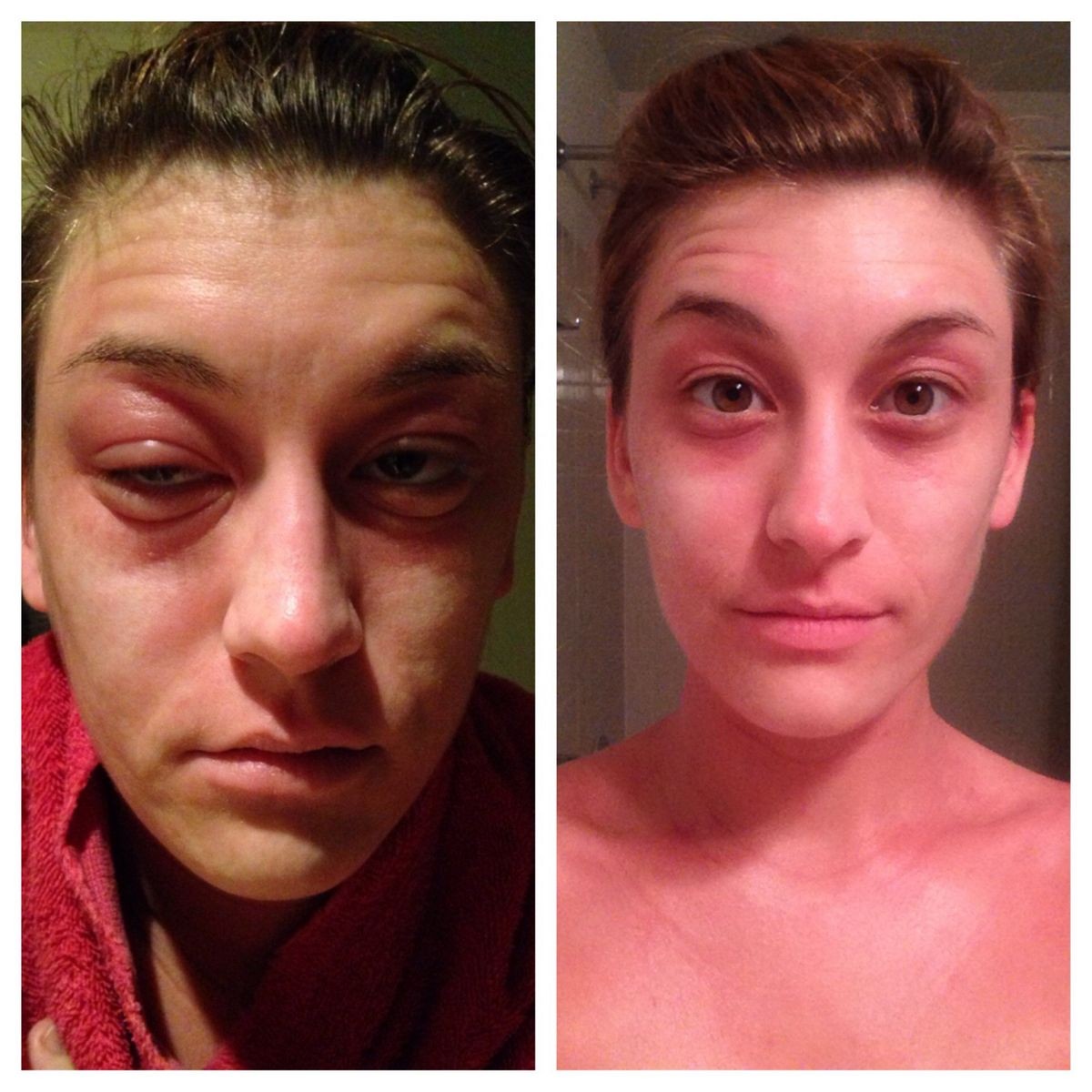
Trimethoprim/Sulfamethoxazole
The combination is a broad-spectrum antibiotic with activity against a wide range of bacteria. The two drugs block consecutive steps in nucleic acid and protein synthesis, essential for bacterial growth. Studies suggest resistance develops more slowly with combination therapy than with monotherapy.
Sulfamethoxazole and trimethoprim inhibit steps in folic acid synthesis. Sulfamethoxazole inhibits dihydrofolic acid synthesis from para-amino-benzoic acid (PABA), while trimethoprim inhibits dihydrofolate reductase, the enzyme required for the production of tetrahydrofolic acid.
The uses of trimethoprim/sulfamethoxazole include:
Adult and Pediatric:
- Urinary tract infections
- Shigellosis
- Pneumocystis jirovecii pneumonia
- Bacterial meningitis
- Bartonella spp. Infection
- Bite wound infection (animal or human bite) prevention or treatment
- Brucellosis
- Cellulitis, recurrent, purulent, or with risk for methicillin-resistant Staphylococcus aureus (MRSA)
- Cyclosporiasis
- Cystoisosporiasis (isosporiasis)
- Diabetic foot infection
- Epididymitis
- Granuloma inguinale (donovanosis)
- Impetigo or ecthyma
- Intra-abdominal infection
- Intracranial abscess (brain abscess, intracranial epidural abscess)
- Spinal epidural abscess (MRSA)
- Lactational mastitis
- Melioidosis(Burkholderia pseudomallei) infection
- Nocardiosis
- Osteomyelitis
- Plague(Yersinia pestis)
- Prostatitis
- Prosthetic joint infection
- Q fever(Coxiella burnetii)
- Septic arthritis (MRSA)
- Spontaneous bacterial peritonitis prevention
- Stenotrophomonas maltophilia infections
- Surgical prophylaxis
- Toxoplasma gondii encephalitis (prophylaxis/treatment) in HIV patients
Organisms susceptible to trimethoprim/sulfamethoxazole include:
Acinetobacter baumannii, Actinobacillus actinomycetemcomitans, Aeromonas hydrophila, Alcaligenes xylosoxidans, Bartonella henselae, Bordetella pertussis, Brucella spp, Burkholderia pseudomallei, Burkholderia cepacia, Chryseobacterium meningosepticum, Enterobacter aerogenes, Enterobacter cloacae, Escherichia coli, Haemophilus aphrophilus, Haemophilus influenzae, Hafnia alvei, Kingella spp, Klebsiella pneumoniae, Klebsiella granulomatis, Legionella spp, Listeria monocytogenes, Moraxella catarrhalis, Morganella morganii, MRSA, MSSA, Nocardia asteroides, Plesiomonas shigelloides, Pneumocystis jiroveci (PCP), Proteus mirabilis, Proteus vulgaris, Providencia rettgeri, Providencia stuartii, Salmonella typhi, Serratia spp, Shigella spp, Staphylococcus saprophyticus, Stenotrophomonas maltophilia, Streptococcus pneumoniae, Tropheryma whippelii, Vibrio cholerae, Yersinia enterocolitica, Yersinia pseudotuberculosis, and various Mycobacteria
Warnings
- Do not use trimethoprim/sulfamethoxazole in patients with:
- Hypersensitivity to sulfamethoxazole or any sulfa drug, trimethoprim or any component of the formulation
- History of drug-induced immune thrombocytopenia with use of trimethoprim and/or sulfonamides
- Megaloblastic anemia due to folate deficiency
- Significant liver damage
- Severe kidney insufficiency when kidney function cannot be monitored
- Impaired kidney or liver function
- Possible folate deficiency
- Severe allergies or bronchial asthma
What are the side effects of trimethoprim/sulfamethoxazole?
Common side effects include:
- Abdominal pain
- Loss of appetite (anorexia)
- Nausea
- Vomiting
- Diarrhea
- Sore mouth (stomatitis)
- Tongue inflammation (glossitis)
- Inflammation of the pancreas (pancreatitis)
- Liver inflammation (hepatitis)
- Jaundice from impaired bile flow (cholestatic jaundice)
- Elevation of liver enzymes (transaminases)
- Elevated blood levels of bilirubin (hyperbilirubinemia)
- Destruction of liver cells (hepatic necrosis)
- Allergic skin reactions including rash, hives (urticaria), pruritus (itching), photosensitivity, Stevens-Johnson syndrome, toxic epidermal necrolysis, erythema multiforme, and exfoliative dermatitis
- Chills
- Drug fever
- Swelling beneath the skin and in the mucous tissue (angioedema)
- Serum-sickness like syndrome
- Allergic inflammation of heart muscle (allergic pericarditis)
- Systemic lupus erythematosus (SLE)
- Red eye (conjunctival and scleral injection)
- Severe allergic reaction (anaphylaxis)
- Henoch-Schonlein purpura, a disorder that causes inflammation and bleeding of small blood vessels
- Periarteritis nodosa, a condition that causes inflammation of small and medium arteries in multiple organs
- Drug reaction with eosinophilia and systemic symptoms (DRESS)
- Severely low count of granulocyte immune cells (agranulocytosis)
- Low red blood cell (RBC) count due to lack of RBC production (aplastic anemia)
- Anemia due to rapid destruction of RBCs (hemolytic anemia)
- Anemia from production of abnormally large RBCs (megaloblastic anemia)
- Low count of neutrophil immune cells (neutropenia)
- Low count of leukocyte immune cells (leukopenia)
- Low platelet levels (thrombocytopenia)
- Deficiency of prothrombin, a blood-clotting substance (hypoprothrombinemia)
- Methemoglobinemia, a disorder with excessive methemoglobin
- High level of eosinophil inflammatory immune cells (eosinophilia)
- Pain
- Irritation
- Inflammation
Less common side effects include:
- C. difficile infection and associated colon inflammation (pseudomembranous enterocolitis)
- Taste disorder (dysgeusia)
- Irregular heart rhythm and abnormal ECG (prolonged QT interval)
- Torsades de pointes, a life-threatening condition causing a rapid heart rate
- Low blood glucose level (hypoglycemia)
- Excessive acidity in the body fluids (metabolic acidosis)
- Idiopathic thrombocytopenic purpura, a condition that causes easy bleeding and bruising
- Thrombotic thrombocytopenic purpura, a disorder that causes blood clot formation
Call your doctor immediately if you experience any of the following symptoms or serious side effects:
- Serious heart symptoms
- Severe headache, confusion, slurred speech, severe weakness, vomiting, loss of coordination
- Severe nervous system reaction
- Serious eye symptoms
This is not a complete list of all side effects or adverse reactions. Call your doctor or report side effects to the FDA at 1-800-FDA-1088.


